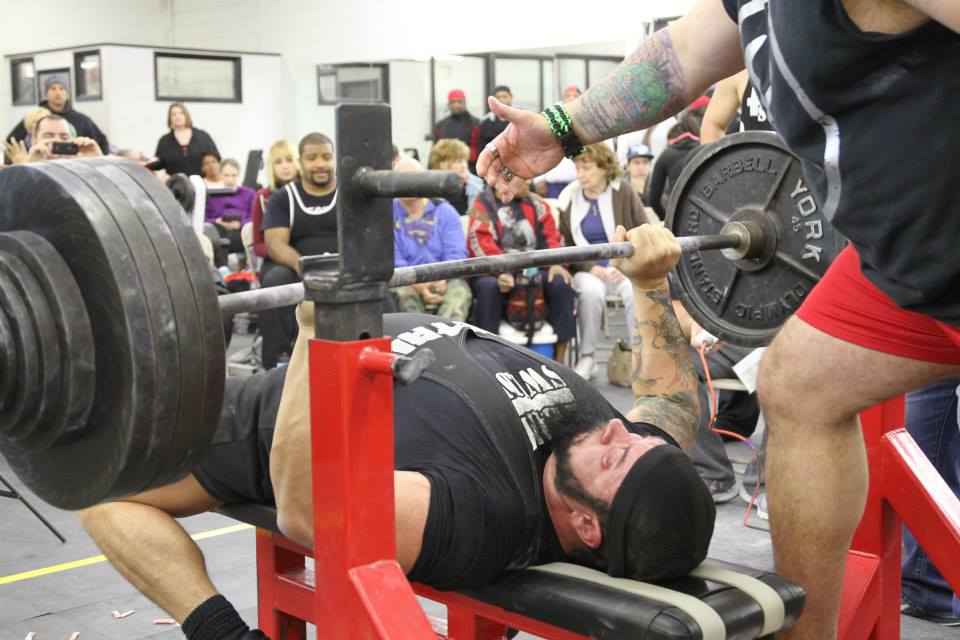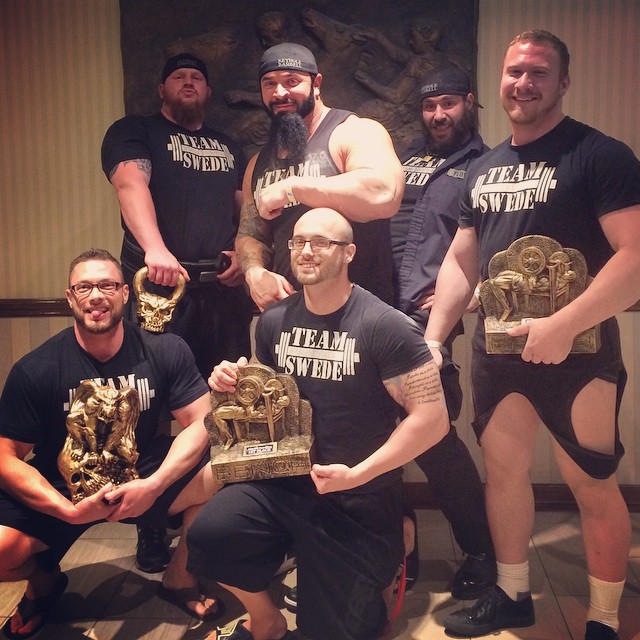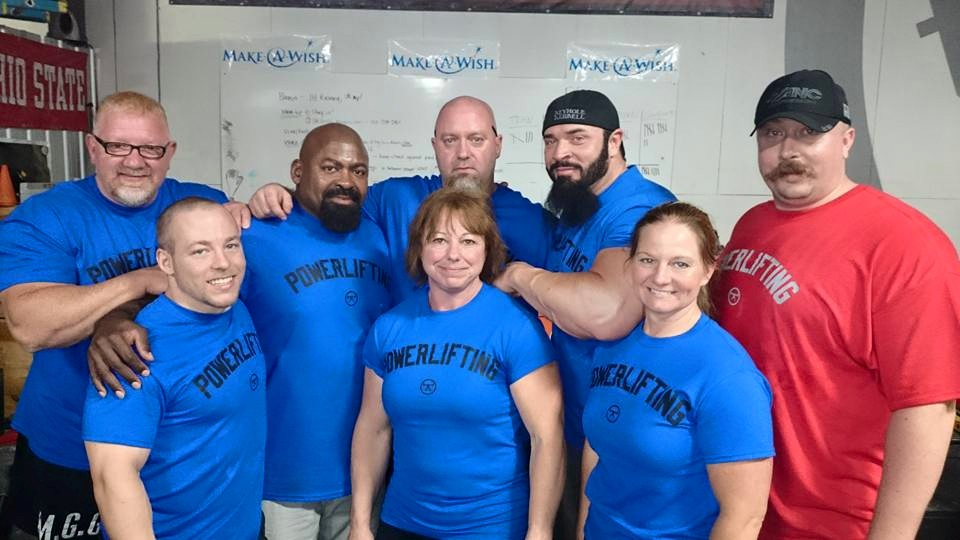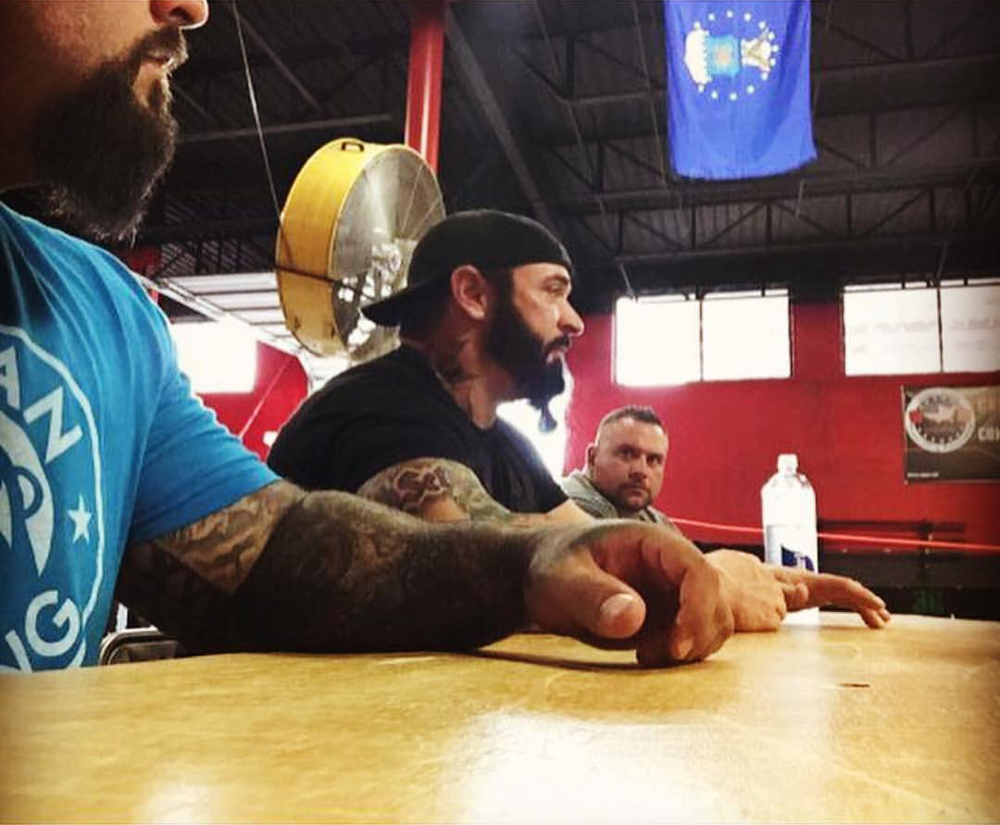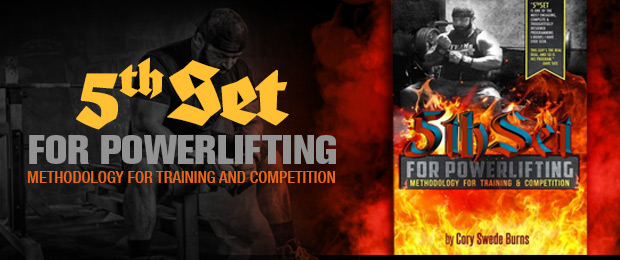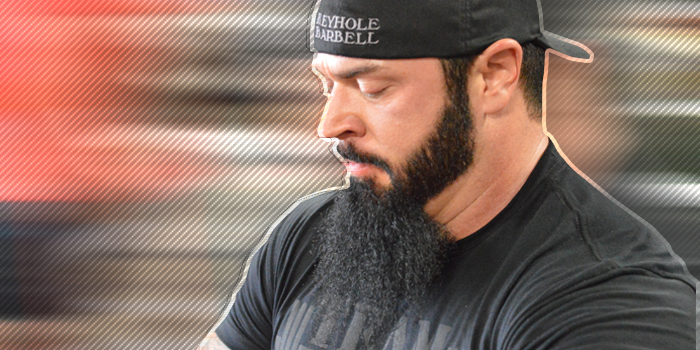
What is more tedious than Internet powerlifting arguments? Nothing; yet there is no tedium I am aware of that is pursued so vehemently. I am a powerlifting coach. Some people seem to think I do alright with it. I work with lifters in the real world, day in and day out, at meets and in training. It's my profession. This has been the case for many years and I do not see that changing any time soon.
I did not always offer online coaching. Programming, sure, but coaching is something very different. Somewhere along the way I sold my soul to social media and now I do a lot of both. To be able to do so effectively, I've had to learn to overcome some obstacles. After all, how do you coach someone over the Internet?
I'm wary of the term itself. "Online coaching." It sounds like you are going to have some guy on Skype yelling at you while you lift weights.
"Who is that Russian guy squawking from your iPhone?"
"Oh, that's Boris Sheiko. I hired him for online coaching."
That might not be so bad, actually, but I do not know of anyone who offers that service, not even Sheiko.
More than the ambiguous terminology, I'm wary of the way some people are doing the thing itself, mainly when the "coaching" seems more like the simple programming I mentioned earlier. They are not the same thing. You can buy a programming book for the latter, at about one tenth the cost of the former. I can think of a really great one off the top of my head. *cough*5thSet*cough*
So, if you are paying someone 250-350 dollars to simply send you a training template, you may want to reconsider your approach, even if this person is a well-known lifter. I'm sorry if I just ruined your day.
Before you get to despair, let me ease your mind.
These provisos notwithstanding, I am not trying to discourage you from working with someone online or from a distance. In fact, I have helped a great number of clients by doing just that, and I love the fact that online coaching allows me to work with lifters I would never be able to otherwise. My objective here is to outline some things to think about when selecting a coach to work with from a distance, as well as what you should consider to be your responsibilities in holding up your end of the bargain in the coach/athlete relationship.
Some of my closest friends are, logically, other top coaches. Those of us who do the online thing tend to run into some of the same problems when working with remote clients and we talk about these issues. So the things I mention here are not from my own experience exclusively, and certainly not meant to hurt anyone's feelings I've worked with in the past. The idea is to help lifters get the most out of a type of coaching which has the potential to be either extremely beneficial, or almost completely worthless. The thing is, that part is largely up to you.
I would be remiss if I didn't mention that the interwebs are heavily populated with some absolutely unqualified charlatans. I won't harp on about this, but it's "buyer beware," so do your fucking research. On the other side of the coin, a lot of people go into things with unrealistic expectations and bring a laundry list of stupid behaviors with them. It's up to you to research the coach you choose. It's up to you to be accountable and hold up your end. It's up to you.
Let's start with some things to consider when selecting a coach to work with online.
WATCH: The Red Flags of Online Coaching
Credentials on a powerlifting coach are about as useful as an ejection seat on a helicopter. There are no truly credible powerlifting coaching programs. There is no recognized prerequisite certification for coaching in the sport. This means you must learn to be a discerner in selecting a coach, online or otherwise.
So, what should you look for?
The most important thing first: take a look at their track record. Do they even have one? How long has the coach been working with lifters? How have lifters faired under the coach's guidance? These questions are common sense, just like the answers should be, and these answers matter more than any other factor.
What exactly does their coaching include? Do they provide video review or are you just buying a really expensive training template like I mentioned earlier?
Has the coach competed? For how long? This is not necessarily a deal breaker, but certainly a point to consider. Did they improve a good deal over a period of time?
Does the coach bash other coaches or make disparaging remarks about other specific professionals or their methods? If the answer is yes, you are going to want to steer clear, right away. Trust me on this. A good coach doesn't have anything to prove, and a true professional will not badmouth another to a customer.
Don't get me wrong, we talk shit about each other to each other, all the time. That's true in any field, and only natural. But if a coach is willing to openly talk bad about their competition to a client, that's probably not someone who is very good at what they do. It's unprofessional, and a line most of the good ones won't cross.
With that out of the way, let's get to the important business of how you can avoid being a typical Internet salad-tosser and get the most out of online coaching.
Be proactive. Don't expect your coach to contact you and ask about your training or to send video for review. No one is going to chase you around and make sure that you do what you are supposed to. This 100% falls under the category of holding up your end and being accountable.
Stick to the script. I can't believe I have to say this, but I've found through repetitious and frustrating experience that I absolutely do. Follow the instruction and direction that your coach gives you and do not change anything on your own.
Be coachable. Do your best to take direction well, and try to never argue or counter what is suggested by the person you are paying to help you. If you feel like your coach is not considering some factor which is specific to you, politely point that out. Coaches are human and can miss things, but ultimately you should defer to their expertise. The fact that you are paying someone is a solid indicator that you realize they know better than you. Don't let pride get in the way of progress.
Be cool. Don't make things more awkward than they need to be. Be yourself and try to be open to talking about your motivations and personal life. As a coach, I do a lot of probing before I am willing to work with someone. If I sense that a potential client is standoffish and won't open up, I won't waste their time, or mine.
RELATED: Coaching From A Distance
Any way you look at it, it will benefit you to establish rapport with your coach and let them get to know you. The better your coach knows you, the more likely they are to care about you as a person and want to invest in you. If someone is making decisions that effect your future and that person doesn't care about you, that's probably not be the best position to be in.
Have a camera or camera phone. It's going to be difficult for an online coach to, you know, coach you on technique if they can't see video of you lifting. In order to make that happen, you will need a digital camera or camera phone which is able to upload video to the internet.
Let me reiterate that I'm not trying to hurt anyone's butt here. If it was a single client running into any of these issues I wouldn't even mention it in this guide. These are the most common obstacles I see and I am including them to help people learn how to get the most out of what can be a really great service.
Edit your videos before sending them. Online coaches can end up with a holy-shit amount of video to review on a weekly basis. This was first brought to my attention by Dave Tate, during a conversation we had on the subject.
Using myself for an example, I get an average of 20 videos of working sets from each online client, per week. If each video is 30 seconds long, that's about ten minutes of video to review. This doesn't include analysis and correction, of course.
If I work with 25 clients at a time, which I do, that's 250 solid minutes, or about four hours of video to review, per week. Again, that's not including the actual work of re-watching multiple times, to identify technical flaws and determine their causes in order to offer correction.
Don't cry for me, Argentina. Reviewing video is my job. But wait...
Plot twist: none of my lifters bother editing their videos before they send them, so each video is a full 60 seconds, 30 of which is said lifter doing their weird hip-shake ritual before they set up to deadlift or whatever.
Now I have over eight solid hours of video to search through in order to analyze and correct, which is much harder, because it's difficult to focus on the the lift itself with all of the other unnecessary, distracting bullshit going on.
The moral of the story: do the right thing and trim your videos before sending them to your coach.
Be patient. Go into this expecting to wait a full 24 hours for feedback and corrections for your videos or answers to your questions. I will pretty much never make someone wait that long but shit happens, and if you go into it expecting a 24 hour wait, you'll be pleasantly surprised when you get a response much more quickly.
If by some chance the coach you are working with is so busy that it takes them a full 24 hours to respond, which is well within reason, you won't be upset. You won't act like a brat and write 14 emails in a span of five hours about how disappointed you are, and how you want your money back because your coach hasn't had a free moment to review the video you sent earlier that day, due to travel or what have you. (I have actually witnessed this happening to a friend of mine who is another great coach.)
Instead, your expectations will be realistic, since you've read this guide, and you will act like a person.
By now, we have covered the main points to consider when selecting an online coach, as well as what can reasonably be expected from you as an athlete.
Online coaching can be very beneficial if you do everything in your power to make the most of it, but there is still no suitable replacement for hands-on coaching. Many coaches will allow you to come work with them in person for a fee. Some travel themselves and teach seminars where online clients can attend to get live coaching and direction. I highly recommend you take advantage of either or both of these if you have the opportunity. It's possible to get more out of one day of hands-on coaching than weeks of online corrections. I offer both of these options.
The weekends that I am not traveling to teach seminars on my Reclaiming Real Strength tour with Brandon and Greg or coaching lifters at meets, I am back here at Keyhole Barbell where many of my online clients travel to work with me on a regular basis. Some even come from out of the United States.
I know that probably sounds crazy to some of you. But remember, the people who are good at this stuff are the ones who wanted it enough to do what it took. Sometimes that means traveling to another state. If something is important enough to you, you'll find a way. If not, you'll find an excuse.










